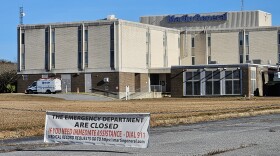Duke Energy plans to begin testing a flat-rate home charging service for electric vehicle owners this fall in North Carolina.
Enrollment begins Friday, Sept. 1, for the program that Duke developed with automakers GM, Ford and BMW. Duke says the one-year pilot's goals are to promote EV use and bring certainty to vehicle charging costs.
The charging pilot comes as the number of EVs on North Carolina roads grow quickly. The state had 13,000 more electric vehicles on the road as of May 31, compared with Dec. 31. That includes 48,383 fully electric vehicles and 17,665 plug-in hybrids. But that's still less than 1% of vehicles on the road.
The subscription service is one of several programs Duke is introducing for EV owners. The company already offers reimbursement for up to $1,100 in costs to upgrade electric service for EV charging. And it recently won approval for a future program that will allow customers to lease home chargers from Duke.
How the subscription program works
Using an app from the automakers, drivers will be able to plan home charging to fit their schedules while also avoiding charging during peak hours on the electric grid. In exchange, they'll get a discount from the regular residential rate, said Lon Huber, Duke's senior vice president for customer solutions and pricing.
"It's a pretty decent discount, as long as you charge in what we call these off-peak or discount windows," Huber said.
That would include the middle of the day and overnight, from about 1 to 6 a.m., Huber said.
For $20 a month in central and western North Carolina (Duke Energy Carolinas), and $25 in eastern North Carolina and the Asheville area (Duke Energy Progress), drivers can use up to 800 kilowatt hours of electricity for EV charging. Duke says that's double the average EV owner's usage.
Spokeswoman Logan Kureczka said the price difference between Duke's two North Carolina territories has to do with the historical difference in the cost of producing electricity in the two zones.
Meanwhile, as part of the trial program, Duke also will have the ability to limit charging when energy demand is high using each car's onboard computer. Under the pilot, Duke would be able to test this feature up to three times per month. EV drivers would get a warning ahead of time when Duke plans to limit charging.
The pilot program begins Nov. 1. It's limited to 100 customers in each of Duke's two North Carolina territories. When it's done, Duke will use what it has learned to seek approval for a full-fledged flat-rate pricing program.







